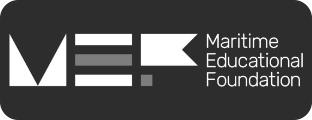TEN MUST HAVE BOOKS FOR ENGINEERING OFFICERS
Posted on 21 April 2017 by Anastasia Finch
Merchant Navy Engineering Officers keep ships moving literally and figuratively. Everything from the propulsion system to the sewage system is looked after by the skilled professionals who use their deep understanding of technology to keep ships sailing safely and efficiently.
It’s a great career option if you’re thinking of going to sea, engineers often have more transferable skills and better career prospects ashore than their sunglasses wearing shipmates in the deck department. The following books are a selection of some of the best material for cadets and qualified engineers alike and are all available in the Marine Society Shop.
 INTRODUCTION TO MARINE ENGINEERING
INTRODUCTION TO MARINE ENGINEERING
This is an invaluable guide for professionals but equally covers the requirements for Class 4 and Class 3 Engineer’s Certificates of Competency, the first two years of the Engineer Cadet Training Scheme, and the Engineering Knowledge syllabus for the Master’s Certificate.
This second edition deals comprehensively with all aspects of a ship’s machinery, from propulsion and steering to deck machinery and electrical equipment, with a strong emphasis on correct and safe procedures.
POCKETBOOK OF MARINE ENGINEERING
From firefighting to steering gear, boilers to lubrication this handy little Q&A book is packed full of questions on every topic that an engineering officer should have a good grasp of.
Ideal for students and instructors alike, the question and answer format helps you to test yourself and others, and cement your knowledge.
PRACTICAL MARINE ELECTRICAL KNOWLEDG E
E
Clearly written and extensively illustrated, this book is a comprehensive reference for management and operational level marine engineers, electrical engineers and electricians with limited experience of modern electrical applications.
It’s also ideal for cadets and students currently studying marine and electrical engineering.
It’s worth mentioning at this point that you can save £15 by buying Practical Marine Engineering Knowledge and the Pocketbook of Marine Engineering as a cadet book bundle, click here for more info.
REED’S GENERAL ENGINEERING KNOWLEDGE
 The new edition General Engineering Knowledge has been updated to include the latest equipment, practices and trends in marine engineering, as well as incorporating the 2010 Manila Amendments, particularly relating to Management.
The new edition General Engineering Knowledge has been updated to include the latest equipment, practices and trends in marine engineering, as well as incorporating the 2010 Manila Amendments, particularly relating to Management.
The book is written in an accessible way and is clearly illustrated, it is the core guide focusing on the knowledge needed for passing CoC exams.
REED’S MOTOR ENGINEERING KNOWLEDGE
Developed to compliment Volume 8 (General Engineering Knowledge), this indispensable book comprehensively covers the motor engineering syllabus for marine engineering officer cadets.
Starting with the theoretical and practical thermodynamic operating cycles, the book is structured to give a description of the engines and components used to extract energy from fossil fuels and achieve high levels of efficiency.
REED’S APPLIED MECHANICS
 This book covers the principal topics in applied mechanics for professional Marine Engineers studying towards certification as well as the core for undergraduates studying for BSc, BEng and MEng degrees in marine engineering.
This book covers the principal topics in applied mechanics for professional Marine Engineers studying towards certification as well as the core for undergraduates studying for BSc, BEng and MEng degrees in marine engineering.
It deals with the basic principals, starting at an elementary level. Each chapter has fully worked examples interwoven into the text, with test examples set at the end of each chapter.
MECHANICAL ENGINEERING PRINCIPLES
If you struggle with very dry, theoretical books, check out Mechanical Engineering Principals. It introduces mechanical principles and technology through examples and applications, enabling students to develop a sound understanding of both engineering principles, and their use in practice.
These theoretical concepts are supported by 400 fully worked problems, 700 further problems with answers, and 300 multiple-choice questions, all of which add up to give the reader a firm grounding on each topic.
MARINE AUXILIARY MACHINERY
This highly respected book instructs both students and professional marine engineers in the operation, care and maintenance of the auxiliary machinery and apparatus on board ship.
This is essential reading for marine engineers preparing for British Certificates of Competency examinations, US Licenses and similar qualifications elsewhere.
DESIGN AND OPERATION OF MARINE AIR COMPRESSORS
If the AC or refrigerators break on board, you’ll know about it pretty quickly, air compressors are vital bits of kit. This book will appeal to any student starting out in a marine engineering career, experienced seagoing engineers and shore-based management staff.
Chapters include: Thermodynamics of Air Compressors, Compressor Selection, Air Cooled Versus Water-Cooled Reciprocating Machines, Modern Compressor Design, Installation, Automatic/Manual Operation, System Fittings, Operating Instructions, Oils, Maintenance and Troubleshooting.
R EGULATORY PRIMER FOR 2ND AND CHIEF ENGINEERS
EGULATORY PRIMER FOR 2ND AND CHIEF ENGINEERS
Magic pipes aside, the regulatory burden on senior engineers is constantly growing and evolving.
Do you know what the bunkering requirements are from 1st January 2011, or how low sulphur fuels are being monitored in the EU? What is required at your ship’s next dry-docking or what cannot be extended beyond 25 years after the ship’s delivery? You get the idea.
This book aims to help senior engineering officers not just with preparing for exams, but also for the practical responsibilities that come with running a ship’s engine room.
WHAT HAVE WE MISSED?
If you have studied or are studying towards a certificate of competency we’d love to know which books helped you along the way most. Comment below, or get in touch with us by email, facebook, or twitter.







